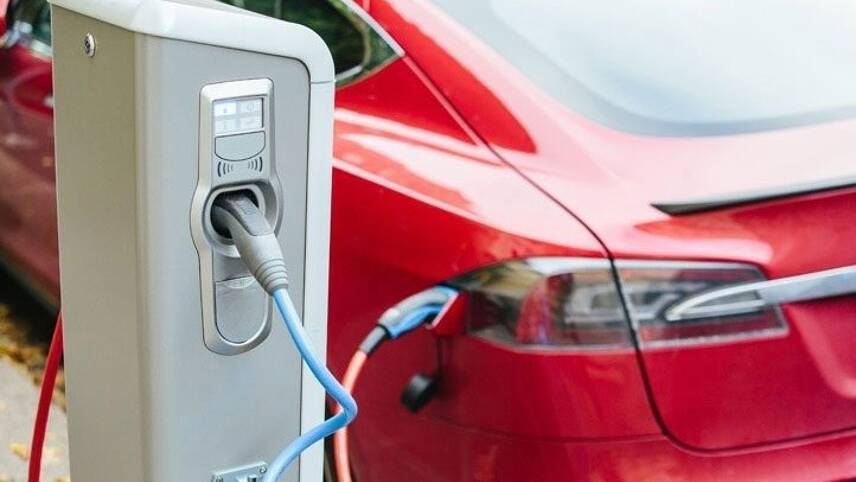Register for free and continue reading
Join our growing army of changemakers and get unlimited access to our premium content

The DfT is expected to publish an EV Infrastructure Strategy for the UK in the coming months
On Thursday (17 February), consumer organisation Which? published a policy briefing on ‘building an EV charging infrastructure that is fit for the future’. The briefing argues that owning and charging an EV is not, at present, a “realistic option” for people without access to off-street parking at home, drawing on recent consumer research revealing that 59% of UK drivers have no intention to buy an EV, with 44% highlighting charging anxiety as a key barrier.
With these challenges in mind, Which? has estimated that 78% of EV charging currently happens at home – predominantly at homes with driveways or garages that enable off-street charging. The report cites a previous forecast from the Competition and Markets Authority (CMA) that some eight million homes will have an EV by 2030, but will be unable to charge it at home.
Which? argues that it is “essential” that this issue is addressed sooner rather than later in the UK’s EV transition, particularly in light of the forthcoming ban on new petrol and diesel car sales in 2030. The report has a headline recommendation for the development of coordinated strategies to add more public charging points, involving councils, industry and UK governments.
Like other policy briefings have already done, it emphasises the need for more clarity, practical support and funding for councils. It also highlights issues of equity, urging work to end the current “postcode lottery” of EV infrastructure, in which some regions have a far better ratio of charging points to vehicles than others.
In terms of consumer access and protection, the report calls for charging point operators to make it possible for drivers to pay with contactless bank cards, rather than the smartphone apps or brand-specific RFID cards that are currently commonplace. This is because there are currently more than 60 charging networks in the UK.
Continued pressure for policymakers
The Which? briefing came shortly after the launch of a similar report from the Society of Motor Manufacturers and Traders (SMMT). According to the Society’s report, the number of plug-in hybrid vehicles on UK roads increased by some 280% between 2019 and 2021.The increase was 586.8% for pure EVs. Sales of these vehicles have outpaced petrol and diesel amid Covid-19 and now, increasing fuel costs, in the UK.
But, within that same timeframe, the SMMT estimates that the number of standard charging points in the UK increased by just 69.8% and the number of rapid charging points increased by 82.3%.
Also making a call to policy action on EV charging this week is the RAC. The organisation is calling for VAT on public charging to be cut from 20% to 5%, bringing the rate in line with the level currently levied on drivers through domestic electricity bill.
Additionally, the RAC is asking the Government to do more to ensure that public charging points installed in the future are rapid or ultra-rapid, as only having access to slower chargers in public could hamper EV uptake. The RAC is citing the Department for Transport’s (DfT) own figures, which state that just 18% of the public EV charging market is accounted for by faster chargers at present.
“While slow chargers are fine for somebody who leaves their car at an office while they’re at work, they’re a lot less helpful in other places like supermarkets where a driver’s vehicle will be parked for a shorter period,” said the RAC’s director of EVs Sarah Winward-Kotecha.
“What we don’t want to see are queues for charge points becoming a common sight as the electric revolution gathers pace.”
The DfT is expected to publish an EV Infrastructure Strategy for the UK in the coming months. It is expected to include new regulations on charging point operators, covering payment methods, reliability and competition. There has not yet been indications that it will certainly include charging point installation targets.
The Government claims that it has, to date, provided £1.3bn for charging points at homes, on streets and at businesses. At present, the overarching ambition is to ensure that EV drivers are never more than 30 miles away from a rapid charging point.
Register now for edie’s EV masterclass webinar
Registration is now open for edie’s next free Masterclass, which is taking place at 1pm GMT on 29 March and will outline how businesses can integrate EVs into their fleets as they work to decarbonise.
Hosted in association with E.ON, this 45-minute online event will help businesses to formulate and deliver ambitious plans to reduce emissions from their fleets, covering ways in which to overcome common challenges including developing the appropriate charging infrastructure and securing investment for the upfront cost.
Click here to register for the Masterclass.
Sarah George


Please login or Register to leave a comment.